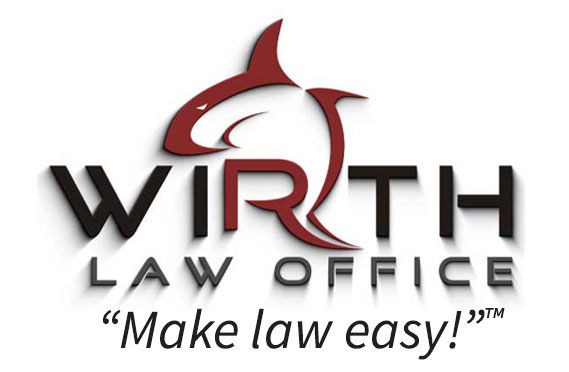 Navigating child custody cases can be emotionally taxing and legally complex, especially when criminal offenses are involved. Understanding how these offenses influence custody decisions in Oklahoma is crucial for parents aiming to protect their rights and their children’s welfare. This article explores the connection between criminal offenses and child custody cases, offering insights into the legal landscape and proactive steps parents can take.
Navigating child custody cases can be emotionally taxing and legally complex, especially when criminal offenses are involved. Understanding how these offenses influence custody decisions in Oklahoma is crucial for parents aiming to protect their rights and their children’s welfare. This article explores the connection between criminal offenses and child custody cases, offering insights into the legal landscape and proactive steps parents can take.
The Court’s Priority: Best Interests of the Child
The cornerstone of any child custody decision is the “best interests of the child” standard. Oklahoma courts prioritize the child’s safety, well-being, and overall development when determining custody arrangements.
Here are some factors the court takes into consideration:
- Emotional and physical needs of the child
- Parental ability to provide a stable and nurturing environment
- Safety concerns, including criminal histories or evidence of harmful behavior
- Parent-child relationships, considering the level of involvement and attachment
This framework ensures the child’s welfare remains paramount, even when one or both parents face legal challenges.
How Criminal Offenses Impact Custody
Criminal offenses can significantly affect how a court perceives a parent’s fitness and reliability. Here’s how these charges may influence custody decisions:
- Parental Fitness and Character: A criminal record may suggest instability, poor decision-making, or an inability to provide a safe environment for the child.
- Credibility as a Witness: Parents involved in custody disputes often testify about their parenting abilities. A criminal history can undermine credibility and cast doubt on their trustworthiness.
- Potential for Supervised Visitation or Loss of Custody: In cases where the court finds a parent’s criminal behavior poses a risk to the child, it may impose supervised visitation or, in extreme situations, revoke custody rights altogether.
Types of Criminal Offenses That May Affect Custody
Not all crimes have the same weight in custody disputes. Certain offenses are particularly concerning due to their direct impact on a child’s well-being. The following are some of the more concerning types of charges:
- Assault and Battery: These raise concerns about anger management and potential harm to the child or co-parent.
- Domestic Violence: A history of domestic violence often results in stringent restrictions, as courts aim to protect the child from any exposure to harmful behavior.
- DUI/DWI: Drunk or impaired driving may reflect poor judgment and a lack of responsibility, undermining a parent’s ability to care for a child.
- Drug Possession or Distribution: Substance abuse issues can lead to concerns about neglect or unsafe environments for the child.
- Child Abuse or Neglect: These offenses almost always lead to a loss of custody, as they demonstrate a direct threat to the child’s safety.
- Endangerment: Acts that expose a child to risk, even unintentionally, are taken seriously by the courts.
- Financial Fraud and Identity Theft: While not directly harmful to a child, these crimes reflect on a parent’s integrity and responsibility, factors courts weigh heavily.
Protective Orders and Their Significance
Protective orders, often issued in cases of domestic violence or harassment, can substantially affect custody and visitation rights. These legal measures are designed to shield individuals from abuse or threats. In family cases, they aim to safeguard children and the victimized parent. A protective order against a parent can lead to limited or supervised visitation. It also signals to the court that the parent poses a potential risk, further complicating their custody claim.
Civil Matters That Could Influence Custody
Criminal charges aren’t the only legal issues that can affect custody cases. Civil matters also play a role and the following are some examples of this:
- Fraud Cases: Even non-criminal findings of dishonesty can harm a parent’s reputation and raise concerns about their values.
- Recklessness Findings: Judgments for reckless behavior, such as negligent driving or causing harm through carelessness, may suggest a lack of responsibility.
- Civil Suits Involving Violence: Though distinct from criminal charges, civil suits for violent acts are treated with similar seriousness in custody evaluations.
Mitigating the Impact of Criminal Offenses
Parents facing custody challenges due to criminal history can take steps to demonstrate growth and responsibility. Here are some ways parents can do this:
- Demonstrating Rehabilitation: Proof of completed rehabilitation programs, counseling, or community service can highlight positive changes.
- Compliance with Court Orders: Adhering strictly to probation terms, protective orders, or other legal mandates shows respect for the law and a commitment to improvement.
- Open Communication with Your Attorney: Working closely with a qualified Wagoner child custody attorney ensures your case is presented effectively, emphasizing strengths while addressing concerns.
Importance of Legal Representation
Child custody laws are complex, and navigating a case involving criminal offenses requires expertise. An experienced Wagoner family law attorney can anticipate potential challenges and craft a strategy tailored to your circumstances. From highlighting rehabilitative efforts to mitigating the impact of past offenses, your Wagoner child custody attorney plays a crucial role in protecting your rights and your child’s interests.
Hire a Wagoner Wirth Law Child Custody Attorney
If you’re navigating custody disputes with criminal charges as a factor, seek legal advice early. Prioritizing the child’s welfare, addressing legal concerns head-on, and collaborating with an experienced Wagoner family law attorney can make a meaningful difference in the outcome of your case.
Wirth Law Office has obtained the best child custody lawyers in Oklahoma who can provide you with a vigorous advocacy for your parental rights. Call (918) 485-0335 for an initial consultation.







